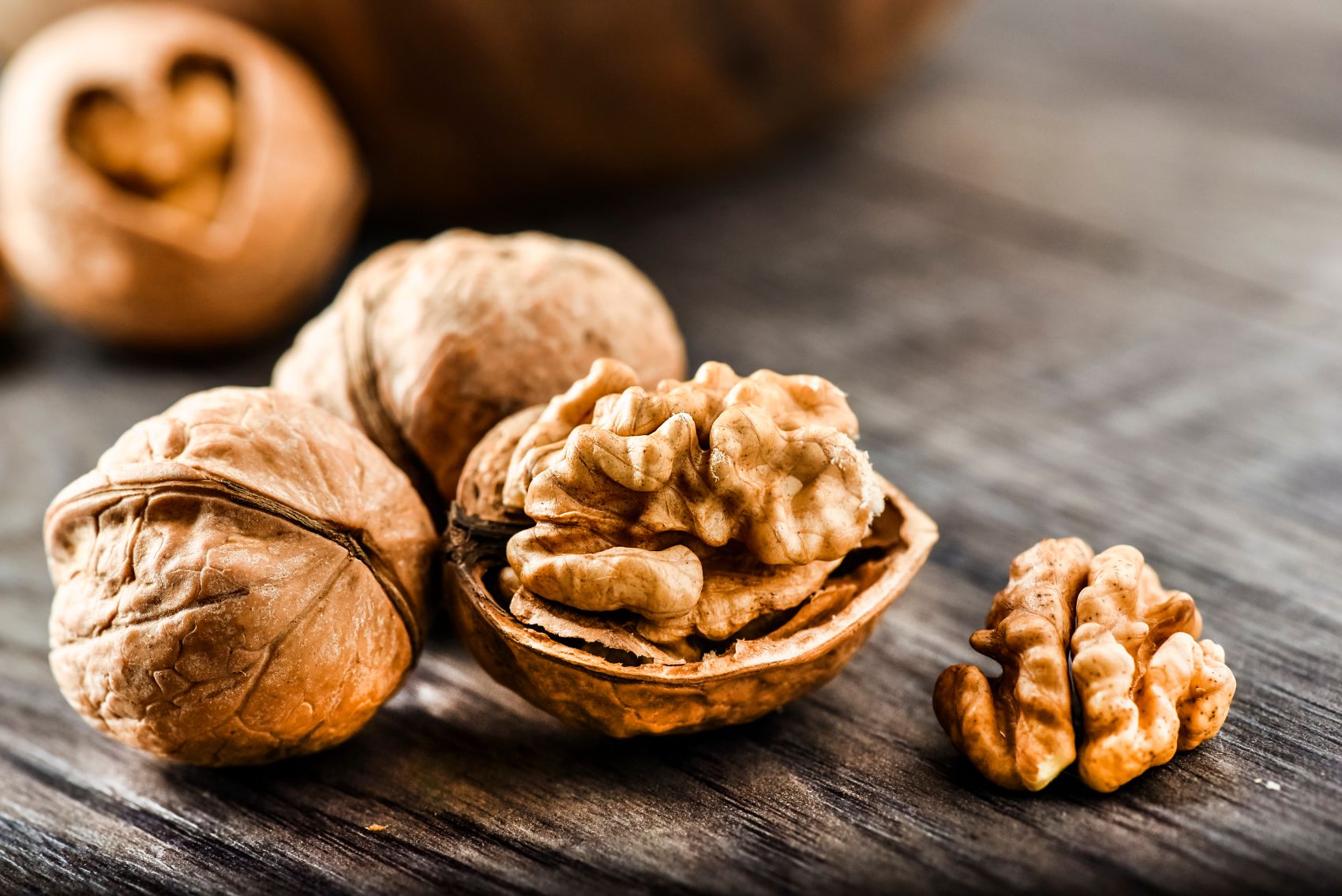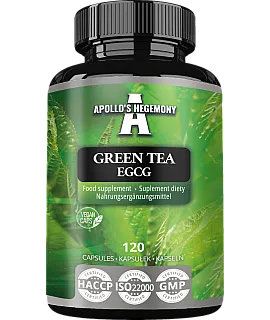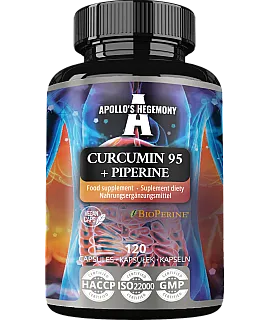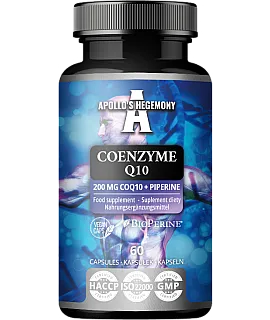PQQ - what is it and what properties does it have?

PQQ is a unique substance whose properties include effects on metabolism, brain and heart function, energy levels and the body's aging processes. Although not formally a vitamin, it shares many characteristics with vitamins. We provide PQQ in certain amounts by following a healthy diet, but stronger health benefits are possible through supplementation, as indicated by many scientific studies.
In this article you will learn about PQQ - what it is, its history, mechanisms of action and most important: what to expect from supplementation. Enjoy your reading!
What is PQQ?
PQQ is an abbreviation for Pyrroloquinoline Quinone (pyrroloquinoline quinone ). It is a substance that is strongly active in the mitochondria and equally involved in energy metabolism and oxidative stress control. PQQ has been linked to biological processes such as mitochondriogenesis, reproduction, growth and aging. According to the literature, PQQ can alleviate clinically relevant dysfunctions, such as those associated with ischemia, inflammation and lipotoxicity. Moreover, PQQ supplementation may provide health benefits such as improved metabolic flexibility, immune protection and neuroprotection.
Chemically, it is an aromatic tricyclic o-quinone. PQQ was discovered in 1979. It was initially identified as a redox cofactor for bacterial dehydrogenases.
PQQ as a supplement is safe. PQQ meets all US-FDA requirements for labeling products as "generally recognized as safe" (GRAS).
Interesting fact: PQQ has been identified as a component of interstellar dust. This indicates that PQQ may have participated in the beginning of biological conception and evolution.
How does PQQ work? - properties
Pyrroloquinolinequinone is currently considered a vitamin-like substance. It does not meet all the criteria for the definition of a vitamin, so it cannot be called a vitamin, but it has much in common with vitamins in terms of its effects. For example, a lack of PQQ in the diet causes a reaction resembling a vitamin deficiency with improvement after supplementation with PQQ. PQQ deficiency in mice and rats causes various systemic responses, including impaired growth, impaired immune response, abnormal reproductive performance and reduced respiratory rate. In higher organisms (including humans), the ability to synthesize PQQ on its own has not been found, so if we want to enjoy its properties (and avoid the consequences of lacking it), we need to eat a healthy diet that provides adequate amounts.
It could be said that the properties of PQQ are analogous to the combination into a single molecule of features:
- ascorbic acid (vitamin C),
- riboflavin (vitamin B2),
- pyridoxal-5-phosphate (vitamin B6).
As early as 2003, some researchers suggested that PQQ was a candidate for the role of a new B vitamin. There are few substances in food that reduce levels of reactive oxygen species as effectively as PQQ.
One of the biggest discoveries in research on PQQ was that it serves as a catalytic helper for lactate and other dehydrogenases in the oxidation of NADH to NAD+. PQQ increases NAD+-dependent sirtuin activity and the expression of sirtuin targets such as PGC-1α, NRF-1 and 2, and TFAM.
And what does the research say? Harris et al. reported that PQQ supplementation (5-10 mg daily) reduced plasma C-reactive protein, interleukin-6 and malondialdehyde levels. In addition, the blood lactate/pyruvate ratio and urinary metabolite profile indicated increased mitochondrial function. Similarly, Hwang et al. showed that daily supplementation with 20 mg of PQQ optimizes mitochondrial biogenesis in humans. It is worth noting that cognitive function and memory also improved in humans after PQQ supplementation (10-20 mg daily).
According to the literature in practice, PQQ can:
- have a neuroprotective effect,
- maintain optimal levels of cognitive function,
- inhibit aging processes,
- protect the heart from the effects of ischemia,
- reduce fatigue levels,
- improve sleep quality,
- improve overall quality of life.

Occurrence of PQQ
In small amounts, PQQ is found in some foods, especially parsley, green tea or fermented soybeans, but also in various vegetables and fruits. However, these are important amounts, because when they are lacking, adverse symptoms can occur.
PQQ in food is found in oxidized form, but this is not a problem, as it is easily reduced by reaction with biological materials.
PQQ is also contained in human milk. There, the concentration is about 20-30 μg/L. This seems to make perfect evolutionary sense, as there are many indications that PQQ is involved in growth processes, so it could also potentially help newborns fed with breast milk.
One source of PQQ is thought to be synthesis by microorganisms that are part of the intestinal microflora. Interestingly, here the relationship is reciprocal - the microflora produces PQQ, and PQQ changes the composition of the microflora and strengthens the intestinal barrier.
How to use PQQ?
The most common suggestions are to use 10 or 20 mg of PQQ per day. However, in some sources, you can find a range of daily servings from 5 to 60 mg. To achieve optimal results, daily supplementation is necessary, and the effects can take up to 2-3 months to accrue. With this supplement, it's worth betting on consistency and patience, and the results can be really pleasant.
To maximize the benefits, PQQ is often combined with other mitochondrial antioxidants like coenzyme Q10, alpha-lipoic acid, or the glutathione precursor n-acetylcysteine.
Summary
PQQ is very effective in controlling oxidative stress and can increase the number of mitochondria, resulting in more efficient energy production in cells. Formally it is not a vitamin, but in practice it has much in common with vitamins. It benefits metabolic health, cognitive function, heart health, but also sleep, mood and overall quality of life.
To reap the benefits of supplementation, take 10 or 20 mg of PQQ daily, ideally for 12 weeks. Simultaneous use of other mitochondria-promoting substances, such as coenzyme Q10, can yield cumulative benefits.
Sources:
 ⮜ Previous article
⮜ Previous article
Magnesium and the cardiovascular system - what are the relationships?
 Next article ⮞
Next article ⮞


